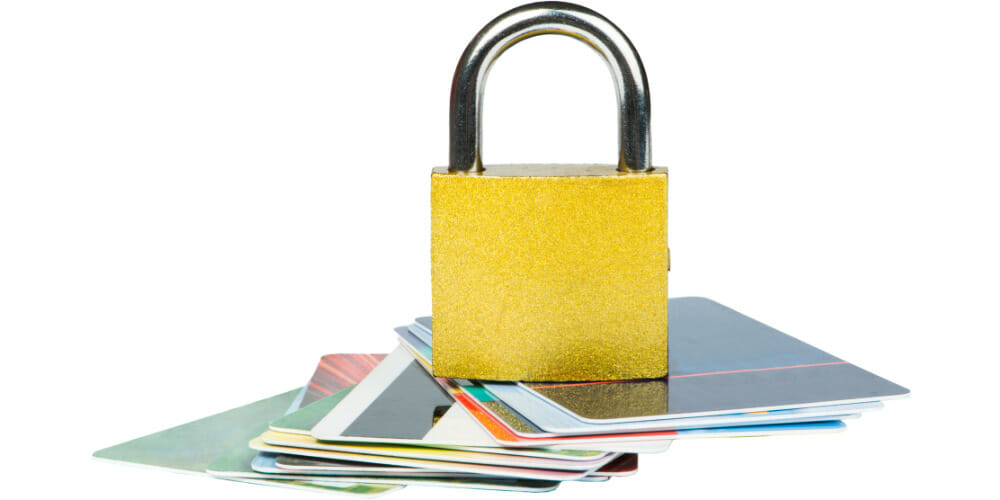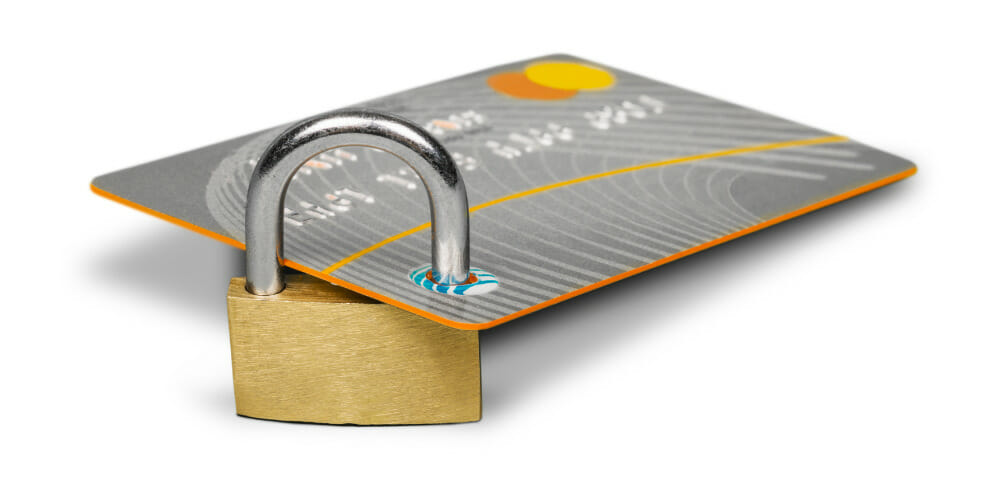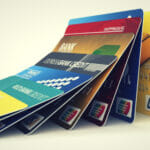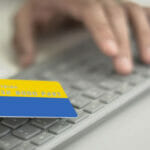Now that most people prefer online shopping, they still can’t trust sharing their credit card numbers with any e-commerce store. Why? Because of online credit card thefts.
Thieves have become so creative that they steal online shoppers’ credit card numbers and use them for online purchases. But the question remains: someone used my credit card online, can I track them?
Fortunately, banks are constantly working to protect their customers from online theft. So, yes, you can track someone who used your credit card online. In this blog, you’ll learn about tracking online credit card thieves. So, let’s get started!
What is Credit Card Fraud?
Credit card fraud is the unauthorized use of someone else’s credit card or credit card information to make purchases or withdraw cash from their account. Credit card companies have therefore enhanced their security to avoid credit card fraud. Banks usually inform you about each credit card online transaction made by your credit card via text or email.
So, if the cardholder notices any suspicious activity, they can quickly report it, so the banks can block their card to avoid further theft.
How do Credit Cards Get Stolen?
There are a few different ways that credit cards can get stolen. This can happen either through online hacking or by physically stealing data from a company’s servers.
Data Breaches
One of the most common ways that credit cards get stolen is through data breaches. This is when hackers gain access to sensitive customer information, such as credit card numbers and expiration dates. Data breaches can happen in a few different ways.
One way is through online hacking. This is when hackers gain access to a company’s servers and steal customer data. This can happen if a company has weak security measures in place, or if the hacker is able to find vulnerabilities in the system.
Card Skimming
Another way that credit cards can get stolen is through card skimming. This is when thieves attach devices to ATMs or gas pumps that copy card information. The thief can then use this information to make unauthorized charges on the victim’s account. Card skimming is a growing problem, as it can be difficult for victims to detect.
Physical Theft
Physical theft of credit cards is also possible, either by pickpocketing or robbing people at gunpoint. This is a less common form of credit card theft, but it can still happen. If you are worried about your credit card being stolen, there are a few things you can do to protect yourself.
First, you should never carry your credit card in your wallet or purse. This makes it easy for thieves to take your card without you knowing. Instead, keep your credit card in a secure location, such as a lockbox or safe. You should also consider using a credit card with built-in security features, such as a microchip or PIN. This makes it more difficult for thieves to use your card if it is stolen credit card.
What Should You Do When Your Card Gets Stolen?
When your credit or debit card is stolen, it can be a stressful and confusing experience. Here are some steps you should take to protect yourself and your finances:
Contact Your Bank Or Credit Card Issuer Immediately
If you suspect that your card has been stolen, the first thing you should do is contact your bank or credit card issuer. They will be able to cancel your card and issue you a new one.
File A Police Report
If you have been the victim of credit card fraud, you should report fraud by filing a police report. This will help protect you from liability for any unauthorized transactions charges that may have been made on your card.
Monitor Your Credit Report
If your card has been stolen, it is important to monitor your credit report for any fraudulent activity. You can order a free copy of your credit report from each of the three major credit bureaus once every 12 months.
Review Your Statements Carefully
You should always review your credit card and bank statements carefully to look for any unauthorized charges. If you see anything suspect fraud, contact your bank or credit card issuer immediately to inform fraud alert.
Credit Card Fraud Investigation Process
If you’re wondering how credit card frauds are investigated, here’s detailed information on the process:
Report The Suspicious Transaction to Your Card Issuer
If you notice that your credit card history shows a suspicious transaction that you didn’t make, immediately contact the credit card issuer company. Tell them about the transaction and that you didn’t process it.
Gathering of Evidence
After you’ve registered your complaint, the bank will investigate the transaction further. They will gather all the relevant evidence, such as:
IP Address
They will track the IP address of the device from which the transaction was made. They will also ensure that the IP address of the suspicious transaction doesn’t match the IP address of the cardholder.
Geological Data
The next step for bank investigators will be to track down the location of the suspicious IP address. The complaint will be discarded if the location is the same as the cardholder’s location.
Transaction Timestamps
The next thing bankers will track is the transaction time and whether it is questionable according to the cardholder’s previous transaction history.
Behavioral Indicators
Bank officials will judge fairly whether the goods purchased in the suspicious transaction are similar to what the cardholder frequently buys.
3-D Secure Systems
Popular card networks such as MasterCard and Visa have 3-D secure systems to authorize each transaction made from the credit card. The bank officials will ask if you have also subscribed to any such security system.
Account Activity
Bank will check if there’s only one suspicious transaction or a whole batch. The bank will transfer the case to Law Enforcement Officers if the suspicious transactions have a long list.
Credit Card Authorizations
Credit card authorizations will freeze your card for further usage.
Transaction Examination
Bank will go through the whole transaction history of the cardholder. Then, the bank officials will decide whether it is reasonable to continue the further investigation.
Banks’ Decision
The bank will consider all the evidence and decide whether you are a victim of credit card theft. If the transaction fraud is authentic, the bank will guide you to contact credit card bureaus to freeze your credit card.
Case Reported To Law Enforcement Officers
After you’re proven to be a victim of credit card fraud, the bank will report the case to Law Enforcement Officers. Law Enforcement Officers will investigate further and catch the culprit.
How To Avoid Online Credit Card Fraud?
With the increased ratio of credit card fraud online, you might be wondering how to avoid this theft. So, here are a few tips to prevent online credit card fraud:

Conduct Regular Virus Scan & System Check On Your Computer
Viruses and bugs have also evolved with the advance in technologies. These viruses can help hackers get a hold of your credit card information. They can use this information for online purchases.
Installing antivirus software on your computer is the only way to avoid this. You can get antivirus software for free. Set it to auto-system check so that you can immediately see if there’s any virus or spyware on your computer.
Transact Only Through Websites With Security Certificates
The most advisable and proven tip is to provide credit card information only to authorized websites. Secured websites are designed to secure your credit card information from unauthorized access.
You can check the website’s legitimacy by searching if there is another website with the same or not. Also, look for “https://” in the address bar.
Use Fingerprint Sign-In When Accessing Mobile Banking Services
Don’t use login credentials to access your mobile banking app. Access your banking services with fingerprint access as it is more secure. Hackers can steal your login credentials, but they can’t steal your fingerprint. So, you should prefer using fingerprint access.
Use 3-D Secure Systems
Global credit card networks such as Mastercard and Visa have 3-D secure systems that add extra protection against credit card fraud. It generates specified OTPs (passwords) to check the authenticity each time you make a transaction.
Lock Your Card Immediately when Misplaced
If you cannot find your credit card, lock it immediately from your mobile banking app. You can lock it for as many days as you want. If you still can’t find the card, report it as a lost credit card.
Be Informed About Scams
Stay updated about various online scam tactics so that you can’t fall into the trap of such scammers.
Regularly Check Monthly Statements
Keep track of your monthly bank statements. If you feel any suspicious activity, quickly report it to the bank or credit card issuer.
You should be serious about creating a solid credit card PIN. Never use the following combinations as your PIN code:
- Date of Birth
- SSN
- Consecutive numbers such as 6,7,8,9
- License number
- Card registration number, etc.
Also, avoid sharing your PIN code with anyone, no matter how much you trust them. You should also avoid using the same PIN code as your mobile phone.
Keep Your Card Safe And Use It Safely
Be aware of pickpockets whenever you’re at a busy place. Also, check the ATM for suspicious devices before putting your card in it. Also, ensure to cover the keypad while entering your PIN code.
Protect Your Identity Against Theft
Someone else might use your information to issue a credit card. So, destroy any document containing information relevant to your personal details before throwing it into the trash bin. Protect your mailbox with fingerprints and patterns so no one can access your personal information.
FAQs
Can you Track A Credit Card?
The short answer is no. Credit cards do not have GPS tracking devices embedded in them, so it is not possible to track their location. However, if your credit card is lost or stolen, you can call your card issuer and they may be able to provide you with information about recent transactions made on the card. This can be helpful in finding out where the card was last used.
If you have a credit card with an EMV chip, the chip provides an extra layer of security against fraudsters. EMV chips are difficult to counterfeit and they store information that is unique to each card. This makes it much harder for thieves to use your credit card without your permission.
Can Bank Transfers Be Traced?
Yes, bank transfers can be traced. If you need to track a transaction, you can contact your bank and request a trace on the transaction. The trace will provide information on where the funds were sent and who received them. This can be helpful if you are trying to resolve a dispute or track down missing funds.
If you are the sender of the funds, the trace will also provide you with confirmation that the funds were sent and received by the intended party. This can be helpful in providing evidence if you need to file a claim or dispute a charge with your bank.
You should note that there may be a fee associated with requesting a trace on a bank transfer. Be sure to check with your bank before requesting a trace to see if there are any fees involved.
Which Credit Cards Get Hacked the Most?
If you’re worried about your credit card being hacked, you’re not alone. Millions of Americans have their credit cards stolen every year, and the problem is only getting worse. Capital One Credit Cards are the most hacked credit card in the US. This is largely due to the fact that Capital One uses an outdated security system that is easy for hackers to exploit.
How Do I Block Access to My Bank Account?
There are a few reasons why you might want to block access to your bank account. Perhaps you’re experiencing financial difficulties and can’t afford to maintain a balance, or you might be worried about identity theft. In either case, blocking access to your bank account is a way to protect yourself and your finances.
The first step is to contact your bank and explain your situation. They may be able to help you by freezing your account or setting up a payment plan. If not, you can still block access to your account by closing it. This will mean that you can’t use your account to make any more transactions, but it will also prevent anyone else from accessing your funds.
Do Credit Card Thieves Get Caught?
No, credit card thieves are not caught often. In fact, less than 1% of total credit card fraud cases get solved. This low success rate is due in part to the fact that credit card theft is a very difficult crime to investigate.
Often, there is no physical evidence left behind, and it can be hard to track down the perpetrator. Additionally, many credit card thieves are very skilled at what they do and are able to avoid detection.
Conclusion
While credit card fraud is common, it is normal to worry about how to avoid it. You can immediately notice any suspicious activity if you regularly check your monthly bank statements. Report it to the bank immediately to prevent any further financial loss.
Keep your money safe by following the mentioned tip to avoid credit card fraud. Prevention is better than cure as these frauds are not solved often.












